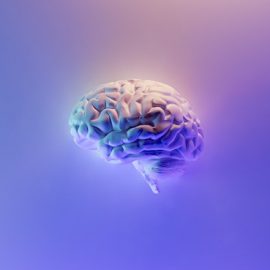
Why are internet distractions so alluring? How are algorithms created to keep us distracted?
In Attention Span, Gloria Mark says we wouldn’t be drawn to electronic distractions if not for the internet. Digital connectivity makes more information readily available than ever before, but this comes with some unanticipated costs.
Keep reading to learn how the internet plays a big part in our subconscious psychological desire to lose focus.
The Lure of the Internet
Because of how the internet structures data, it opens the door to protracted online browsing, some of which is unintentional and some of which is driven by algorithms that exploit your innate tendency to get distracted.
Mark suggests that one major reason that internet distractions are so addictive is that the way the internet connects ideas mirrors how the human mind stores information. Rather than sorting ideas into categories, as a cataloger or librarian might do, both the brain and the internet group concepts by association.
For instance, when you think of your car, your mind might jump to a specific song you heard while driving, and from there to the artist who wrote that song, and to a concert venue where you saw them perform. Likewise, data on the internet is grouped by hyperlinks that take you from one topic to the next for as long as curiosity demands. It doesn’t take much—even tiny kernels of data can launch your brain’s curiosity-reward cycle, making associations and following links down meandering paths of information.
| Your Brain Online While hyperlinks may indeed be similar to how the brain stores information, research suggests that internet use actively changes how your brain functions. In The Shallows, Nicholas Carr writes that because of how the brain alters itself with learning and experience, even as little as five hours online can cause new neural pathways to form new neural pathways. These new neural pathways are optimized to process fast-paced information, such as what the internet dishes out, while overwriting any neural connections that internet use suppresses, such as those that help to focus your attention. Even worse, Carr suggests that internet use interrupts the process of memory creation. Normally, information enters your short-term memory first, but to retain it, your brain must transfer it into long-term memory storage. When you jump from thought to thought by association, as Mark describes, you’re accessing data in your long-term memory, but when you do the same on the internet, you don’t give your brain time to absorb those facts, and your understanding of the world grows shallower. In this way, Carr says that the internet doesn’t simply mimic human memory—we’re actively using it to outsource our memory. |
Unconscious Surfing
To the founders of the internet, its limitless capacity to cross-pollinate information was a good thing, but they didn’t anticipate how much it would impair people’s ability to focus. Mark points out that like the mental state of mind-wandering, internet surfing isn’t usually goal-oriented and can begin without us consciously intending it to. The online world presents information in a way that allows for flexible thinking and encourages users to make creative connections, but it also provides a Pandora’s Box of potential distractions every time you log in.
(Shortform note: Though nearly everyone online has spent some time in aimless internet wandering, how and why we go about it is more varied than Mark suggests. A wide-ranging study of Wikipedia users reveals three distinct categories of internet surfers—those who follow any threads that spark their interest, those who go digging for specific bits of data, and those who seek to bridge divergent fields of study. Each of these “curiosity types” experiences the internet differently, on a spectrum from the purely goal-oriented to the completely undirected.)
While we must accept some blame for spending hours in digital mazes, Mark emphasizes that our online behavior is covertly managed by algorithms designed to keep us distracted. It all began with websites collecting data to deliver personalized content and ads. Today, those algorithms are more sophisticated; they use data about your browsing habits to divine your personality and preferences so they can manipulate your attention with precision. Mark argues that these algorithms’ basic intent is to keep us engaged with content, steering us toward what news to read, what opinions to debate, and what products to buy.
(Shortform note: Beyond merely keeping us engaged with content and keeping us distracted, as Mark suggests, online algorithms may be subtly shaping the content available to us. In Filterworld, Kyle Chaka argues that an unintended side-effect of algorithms—such as those that suggest TikTok videos or songs on Spotify—is that content creators now feel pressured to design their creative output to increase the odds that algorithms recommend them. The result is a homogenized cultural landscape in which every video, song, and article is competing to conform to algorithmic expectations. Therefore, in addition to guiding your attention, algorithms drain the variety from the different things you might pay attention to.)






